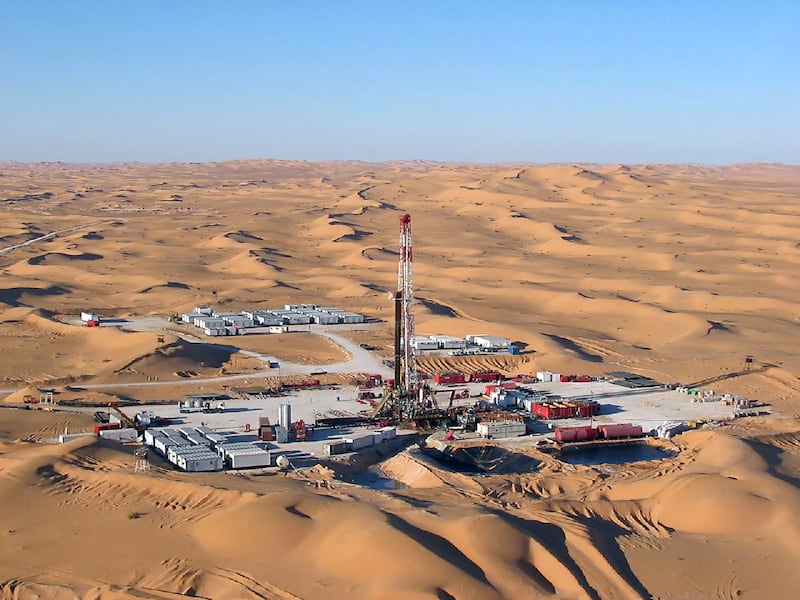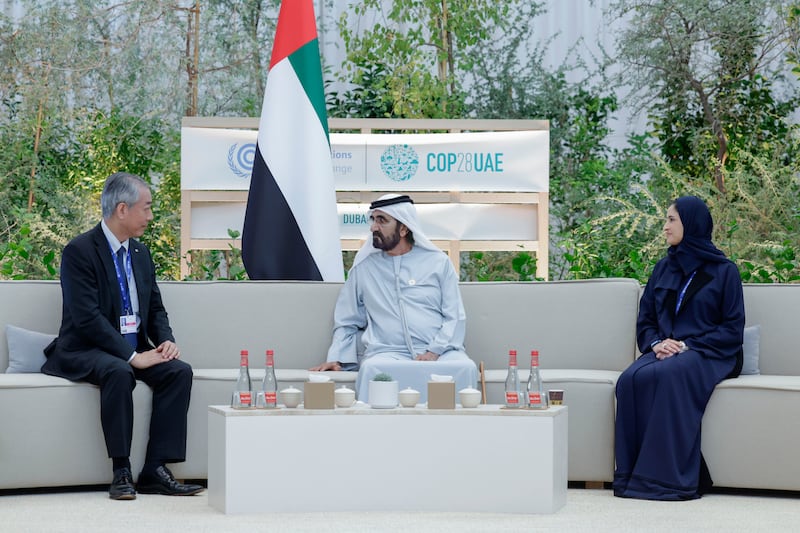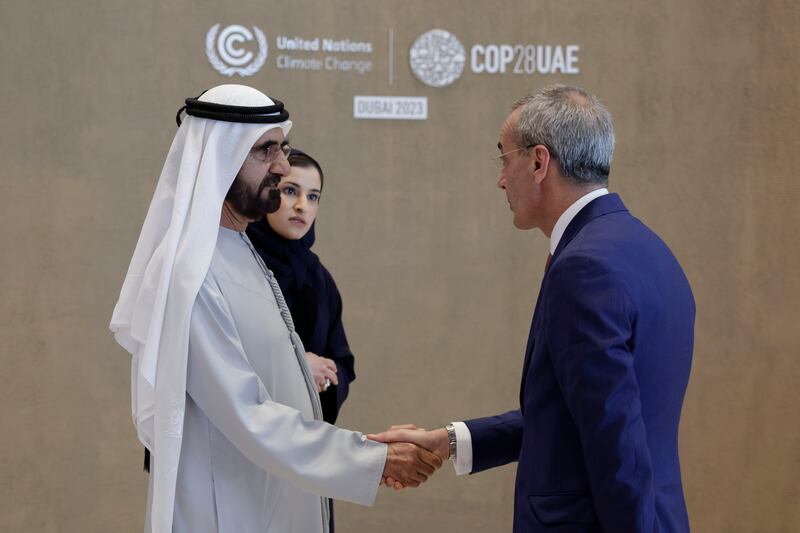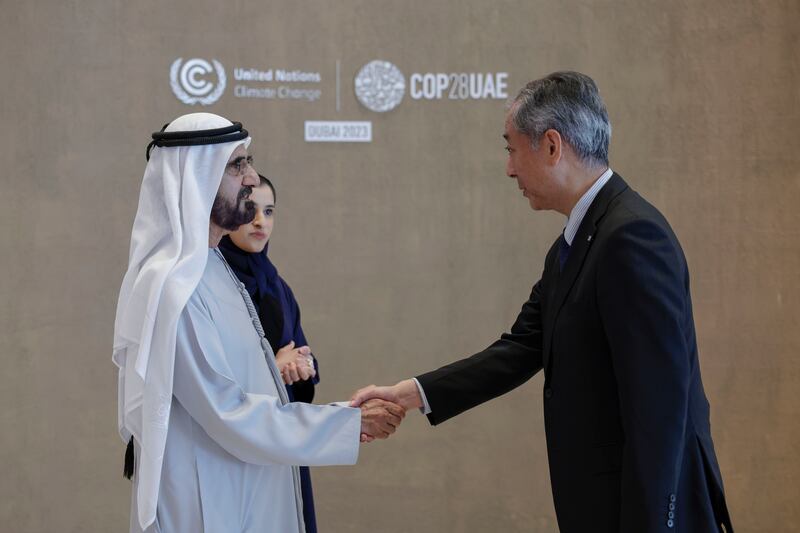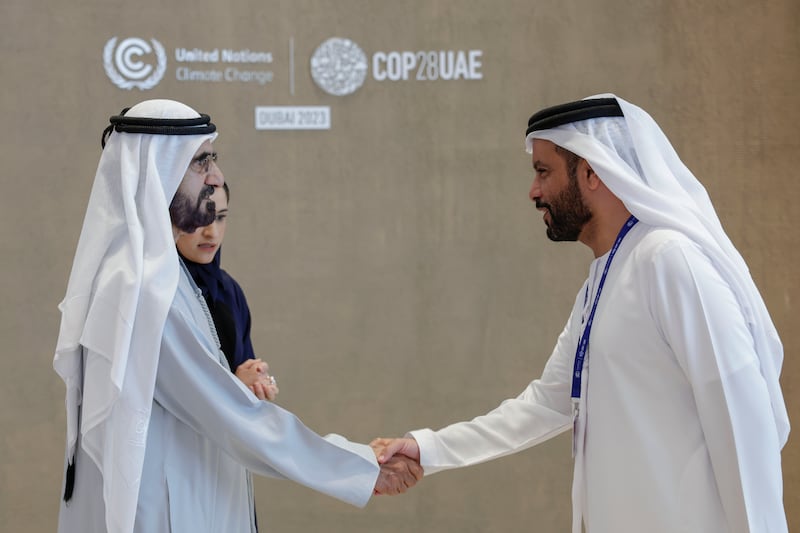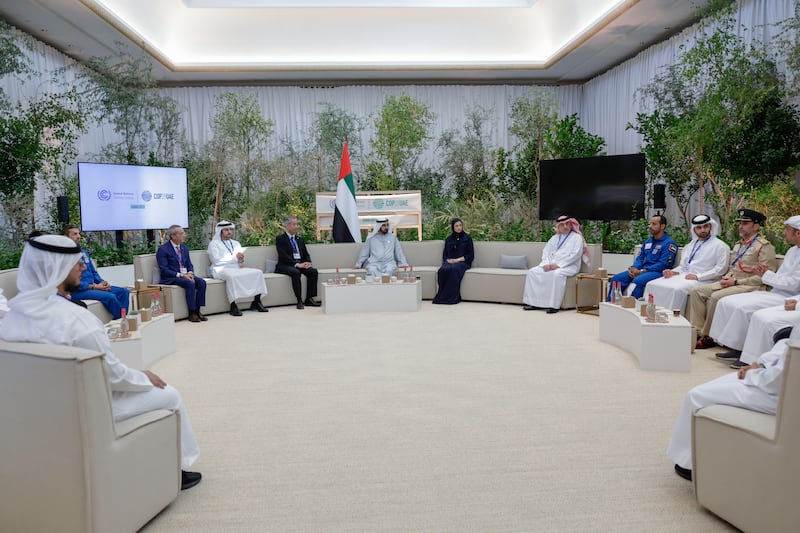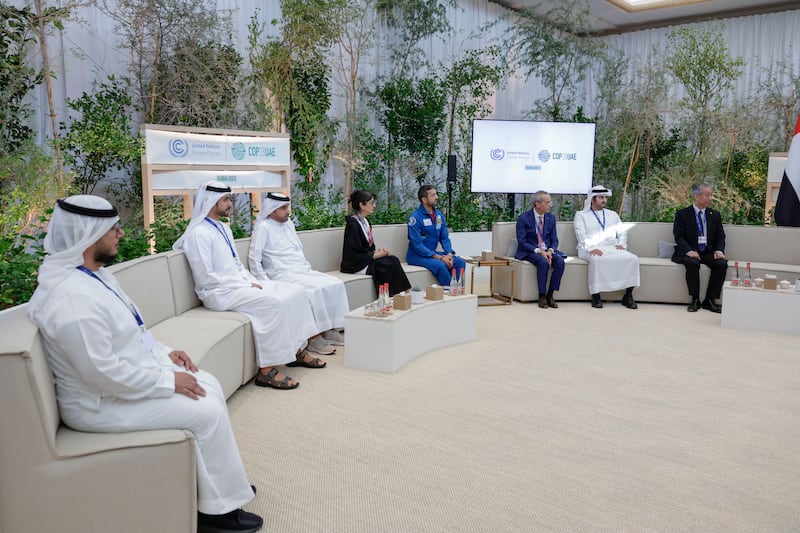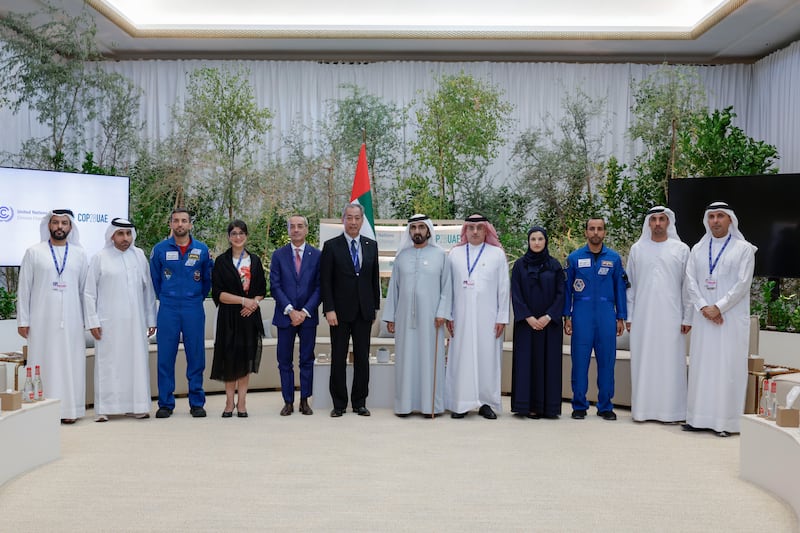Sharjah National Oil Corporation (SNOC), the emirate’s sole gas supplier, is exploring green hydrogen and carbon capture projects amid efforts to reach net-zero emissions by 2032, its chief executive has said.
The company, which is set to develop Sharjah’s largest solar plant, is considering “next steps” that may include carbon capture and electrification of some operations to help the switch to renewables, Hatem Al Mosa told The National on the sidelines of the Cop28 climate summit.
The SNOC is at the research phase on potential green hydrogen production and carbon storage, Mr Al Mosa said.
“Hopefully, in time when they're mature, maybe we can apply some of these technologies … we're also learning from what's happening in the industry,” he said.
The SNOC, established in 2010, is tasked with exploration, production, engineering, construction, operation and the maintenance of Sharjah's energy assets.
In addition to the Mahani gasfield, which was discovered in 2020, it owns and operates three onshore fields, a gas processing complex, two hydrocarbon liquid storage and export terminals and a network of flow lines and production pipelines.
In July, the company signed an initial agreement with Japan’s Sumitomo Corporation to explore a carbon capture project in the emirate.
In October, the SNOC and Emerge Company, the joint venture between France’s EDF Group and Masdar, signed an agreement to build the emirate’s largest solar power station.
This solar plant, which is expected to be operational by the end of 2024, will have a capacity of 60 megawatts.
The company has connected the project to the grid to export surplus power to the Sharjah Electricity, Water, and Gas Authority (Sewa) while obtaining power from the utility at night.
“The net [difference] is used as credits to abate other emissions of SNOC, but that by itself is not enough,” Mr Al Mosa said.
“It does make us 100 per cent renewable in power, but not … zero emission because most of our emissions are coming from gas turbines, heaters, other sources.”
Natural gas would continue to be the main component of power generation in Sharjah and the UAE through 2050, Mr Al Mosa said.
The UAE has been investing heavily in clean energy projects, ranging from nuclear to solar, to achieve net-zero emissions by the middle of the century.
The Emirates also aims to produce 1.4 million metric tonnes of hydrogen annually by 2031 and 15 million metric tonnes every year by 2050.
Mr Al Mosa said hydrogen would play a big role in lowering emissions in hard-to-abate sectors such as shipping and aviation.
Abu Dhabi’s clean energy company Masdar has signed several agreements at Cop28 to produce and trade hydrogen, considered a low-carbon alternative to natural gas.
On Thursday, Masdar and Verbund Green Hydrogen inked a deal to explore developing a green hydrogen plant in central Spain.
A study will evaluate if green hydrogen produced at the plant has the potential to displace up to a million tonnes of carbon emissions annually, equivalent of removing about 700,000 cars from the road every year.
French investment bank Natixis estimates investment in hydrogen will exceed $300 billion by 2030.
Earlier this week, more than 30 countries signed a declaration of intent, under which states have agreed to endorse a global certification standard for hydrogen and to recognise existing certification schemes.
On Wednesday, Masdar signed a joint study agreement with the port of Amsterdam to assess the feasibility of a dedicated liquefied green hydrogen supply chain.
